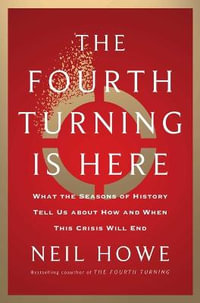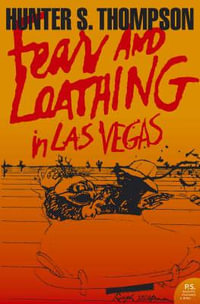When John F. Kennedy was shot, millions were left to wonder how America, and the world, would have been different had he lived to fulfill the enormous promise of his presidency. For many historians and political observers, what Kennedy would and would not have done in Vietnam has been a source of enduring controversy.
Now, based on convincing new evidence--including a startling revelation about the Kennedy administration's involvement in the assassination of Premier Diem--Howard Jones argues that Kennedy intended to withdraw the great bulk of American soldiers and pursue a diplomatic solution to the crisis in Vietnam.
Drawing upon recently declassified hearings by the Church Committee on the U.S. role in assassinations, newly released tapes of Kennedy White House discussions, and interviews with John Kenneth Galbraith, Robert McNamara, Dean Rusk, and others from the president's inner circle, Jones shows that Kennedy firmly believed that the outcome of the war depended on the South Vietnamese. In the spring of 1962, he instructed Secretary of Defense McNamara to draft a withdrawal plan aimed at having all special military forces home by the end of 1965. The "Comprehensive Plan for South Vietnam" was ready for approval in early May 1963, but then the Buddhist revolt erupted and postponed the program. Convinced that the war was not winnable under Diem's leadership, President Kennedy made his most critical mistake--promoting a coup as a means for facilitating a U.S. withdrawal. In the cruelest of ironies, the coup resulted in Diem's death followed by a state of turmoil in Vietnam that further
obstructed disengagement. Still, these events only confirmed Kennedy's view about South Vietnam's inability to win the war and therefore did not lessen his resolve to reduce the U.S. commitment. By the end of November, however, the president was dead and Lyndon Johnson began his campaign of escalation. Jones argues forcefully that if Kennedy had not been assassinated, his withdrawal plan would have spared the lives of 58,000 Americans and countless Vietnamese.
Written with vivid immediacy, supported with authoritative research, Death of a Generation answers one of the most profoundly important questions left hanging in the aftermath of John F. Kennedy's death.
Death of a Generation was a CHOICE Outstanding Academic Title for 2003.
Industry Reviews
"Superb analysis of the 1963 Buddhist crisis."--Reviews in American History
"Jones...argues that the instability of Diem's government, followed by the assassinations of Diem and JFK, combined to create an environment where escalation of American involvement in Vietnam became inevitable, thus triggering what Jones terms 'the death of a generation"...Jones goes deeper into the existing evidence supporting this thesis than have most other writers, and does so in a highly readable manner."--Publishers Weekly
"This is a 'what if' book, and lay historians may wonder whether such a book has a place in history. The answer in this case is a strong affirmative."--Richmond Times-Dispatch
"A major piece of scholarship...The account of the events leading up to the assassination of South Vietnamese President Ngo Dinh Diem is particularly good, and the assessment of its dire effect on the nature of the U.S. commitment to South Vietnam, convincing."--Foreign Affairs
"Jones's new work [is] the most comprehensive and credible yet"--Toronto Globe and Mail
"Argues quite convincingly that had the coup not been bungled and Johnson not propelled to leadership, Vietnam may have ended quite differently--almost certainly not in the deaths of 58,000 Americans and untold hundreds of thousands of Vietnamese. Solid history marked by memorable moments (including a glimpse of David Halberstam looting Saigon's presidential palace) and the highly effective use of hitherto classified documents."--Kirkus Reviews
"Jones presents a work of outstanding scholarship, on which he spent 15 years researching recently declassified State Department records and a comprehensive array of other primary and secondary documents, to arrive at a persuasively affirmative response...This scholarly appraisal ranks with Fredrik Logevall's Choosing War and David Kaiser's American Tragedy as one of the most important current investigations of the diplomacy of the early
war."--Library Journal
















![Hidden Figures : The Untold Story of the African American Women Who Helped Win the Space Race [Film Tie-In Edition] - Margot Lee Shetterly](https://www.booktopia.com.au/covers/200/9780008201326/null/hidden-figures.jpg)







